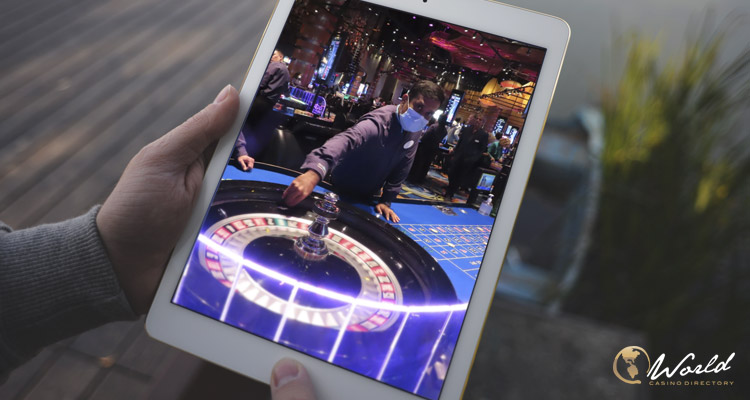
The New Jersey Supreme Court is contemplating if Atlantic City Casino could receive business interruption insurance payments for losses that it suffered throughout the pandemic period, possibly offering guidance to policyholders across the country on the extent of coverage for any losses related to the aforementioned pandemic.
The case:
On September 27, the aforementioned Court listened to all arguments in the case filed by officials of the Ocean Casino Resort, which already had $50 million in business interruption insurance even before COVID-19 officially started. Additionally, three insurance firms such as American Guarantee & Liability Insurance Co., Interstate Fire & Casualty Co. and AIG Specialty Insurance Co. have mostly refused to pay the casino, stating it “suffer no direct physical loss or damage because of the virus.” However, said casino didn’t just sat back and accepted that decision, which is why it took legal action against said insurers and defeated their try to “dismiss the case.” But, that decision was overturned by the appeals court.
The matter has come up in federal and state courts, involving cases were payments have been refused, including a California movie theater chain, a real estate firm in Los Angeles, a hotel group in Pennsylvania and a law company and hotel group in New Jersey. Speaking on the issue, Ocean wrote in court documents: “This case presents a generational legal dispute that this court should resolve in order to provide needed clarity to hundreds of thousands of affected New Jersey policyholders and their insurers regarding the scope of coverage for losses arising from the pandemic.”
Attorneys for the aforementioned insurance firms claimed that “their policies clearly included viruses among the list of things that could be excluded from coverage.” They also said the casino didn’t list the steps it was compelled to take to remove or fix the virus, stating that the only reason for the shutdown was an official order from New Jersey Government Phil Murphy that happened on March 16, 2020, shutting down the casinos till July 2, 2020.
In this regard, the lawyer of the aforementioned casino, Stephen Orlofsky, commented, as reported by Associated Press News: “The casino took several steps to respond to the virus, including employing air filtration systems and using industrial-strength cleaning supplies.” However, the lawyer for American Guarantee, David Roth, said: “The policies require there to be physical damage to the property, which he said did not occur at the casino. 14 state Supreme Courts around the nation have held that the mere interruption of business activity during the pandemic does not constitute physical losses.”
Also, Orlofsky added: “Ocean maintains that in addition to the governor’s order closing the casinos, it also shut down due to the concern that the virus was having on the physical surfaces and the air inside the casino.”
Resolving questions:
During 2022, the Supreme Court concurred to solve several questions related to the said case. Those questions are:
- whether an allegation that COVID-19 caused physical damage to an insured casino is sufficient to claim direct physical damage loss for it?
- whether aforementioned insurers may legally restrict coverage for losses caused by COVID-19 by alluding to viruses in the general contamination or pollution exclusions?
Moreover, the casino requested payouts for losses that happened throughout that time under policies from the aforementioned insurance firms. Even though the primary assertions were refused, the casino did get $850.000 under a special provision of the policy regulating infectious diseases. Relatedly, Ocean also wrote in court documents: “The actual and/or threatened presence of coronavirus particles at the Ocean Casino Resort rendered physical property within the premises damaged, unusable, uninhabitable, unfit for its intended function, dangerous, and unsafe.”
An insurance advocacy group for insurance clients, United Policyholders, is calling out the judges in a “friend-of-the-court” filling to make a final ruling that will benefit the casino. On that note, it wrote: “The ruling sought by the (insurers) here would curtail coverage for millions of New Jersey policyholders. The insurance industry at large understood, prior to the COVID-19 pandemic, that the presence of a virus or any dangerous substance, or the imminent risk of its presence at (an) insured property was capable of satisfying their own understood meaning of physical loss or damage to property.” An insurance advocacy group for insurance clients, United Policyholders, calls out the judges in a “friend-of-the-court” filling to made the final decision that will benefit the casino. On that note, it wrote: “The ruling sought by the (insurers) here would curtail coverage for millions of New Jersey policyholders. The insurance industry at large understood, prior to the COVID-19 pandemic, that the presence of a virus or any dangerous substance, or the imminent risk of its presence at (an) insured property was capable of satisfying their own understood meaning of physical loss or damage to property.” However, the judges didn’t deliver a decision on September 28 and didn’t reveal when it would happen.
The online casino business in India is rapidly growing, driven by increasing internet access, smartphone usage, and interest in online gaming. While online gambling laws in India vary by state, many international platforms cater to Indian players, offering games like slots, poker, and cricket betting. The industry thrives on cryptocurrency transactions, INR payments, and localized promotions.
Despite legal ambiguity, the demand for online casinos is high, with players seeking secure, regulated platforms that provide an array of gaming options and bonuses. However, players should always ensure they are adhering to local laws.





